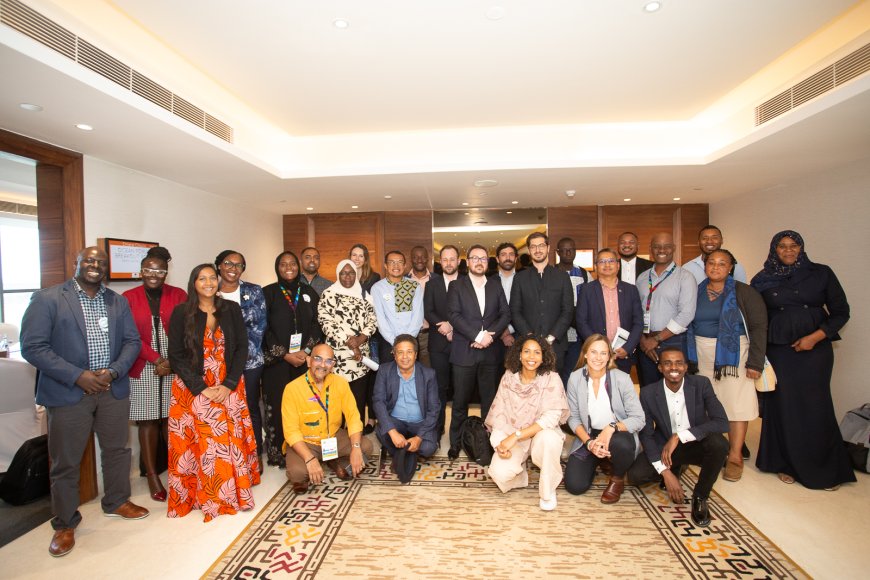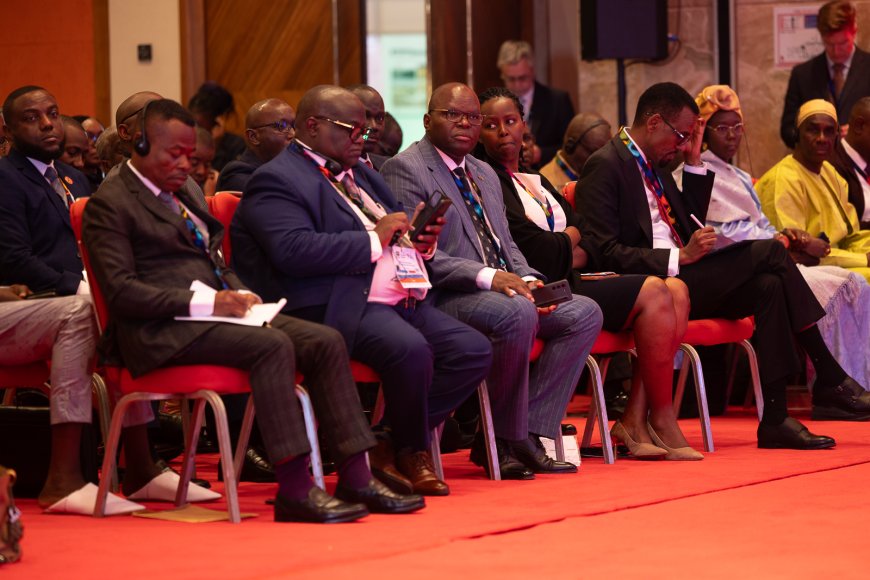IUCN Africa Conservation Forum: People are the Key to Maintaining Biodiversity

By Thuku Kariuki and Daniel Furnad
Kenya has just finished hosting another vital conference to move conservation efforts forward across the African continent. The International Union for Conservation of Nature ( IUCN) chose Nairobi as the site for its inaugural Africa Conservation Forum.
The event brought together over 700 key actors, from governments to civil society organizations, academics to scientific experts, including women and youth leaders. Unlike in previous occurrences, the continent wasn't separated into the three regional groupings. The IUCN feels it is time for African conservation efforts to unite! Thus, the theme for the forum: African solutions for nature and people – creating transformative responses to the biodiversity and climate crisis in Africa.
Putting people at the center of the discussion was no accident. The host nation has seen its population nearly double in the last two decades, from 26 million to over 50 million citizens. Similar population booms are seen across Africa, now home to over a billion people. Naturally, this strains ecosystems as Africans seek to provide for their growing families.
As he officially opened the discussions, Alfred Mutua, Kenya's Cabinet Secretary for Tourism and Wildlife, noted his observation of the increase in human-wildlife conflict.
"For conservation to be truly effective and sustainable, we must ensure that local communities are not only involved but are also primary beneficiaries...Kenya, with its rich biodiversity, is actively implementing the National Biodiversity Strategy and Action Plan, focusing on locally-led and appropriate solutions for nature and people."
People and action became key themes as the conference commenced.

IUCN delegates
IUCN warns that biodiversity and the whole ecosystem are under immense pressure. Their research shows that 6,400 animals and 3,100 plants in Africa are at risk of extinction. Statistics on birds and fish are less complete, but populations of vertebrate
species in Africa are estimated to have declined by 39 percent since 1970.
The continent's development is of interest to the entire world. Africa is home to one-quarter of the world's mammal species, one-fifth of the world's bird species, at least one in six of the world's plant species, and 369 wetlands of international importance. If action is not taken, people will continue encroaching on land and resources that these species need to flourish.
"We've run out of time: existing actions are inadequate, and true transformation means moving from transformation rhetoric to integrated actions in the biodiversity-climate-energy nexus now," stated Imèn Meliane, IUCN Vice President and Regional Councillor.
Much of the focus of the three-day event was on climate change, a subject explored in Nairobi during last year's inaugural African Climate Summit. According to IUCN data, climate change is exacerbating human-driven biodiversity losses.
At global warming levels (GWL) above 1.5°C, the continent will lose 30 percent of the suitable habitat for various species. More than 10 percent of plants, vertebrates, and invertebrate species across 90 percent of Africa will face the risk of local extinction. At 2 degrees GWL, the effects are even more dramatic, with the local extinction of more than 50 percent of plants, vertebrates and insect species across one-fifth of Africa. A total extinction of a third of freshwater fish and more than 90 percent of warm-water coral reefs is also predicted.
By the end of the event, some powerful conclusions were announced. Delegates determined that Africa needs to ramp up investment in its natural assets to support its economies and society. New business models that engage women and younger
generations prove that investing in nature brings benefits for all.
Governments and the private sector working together with civil society organizations, accompanied by enhanced education and communication actions, were identified as
templates for a better-integrated method of working.
"Africa is a youthful continent, and innovative solutions require the voices and aspirations of its youth to make them a reality," said Fatima El-Araby, Young Professional Regional Focal Point –Africa, IUCN Commission on Environmental, Economic and Social Policy (CEESP).
While participants stressed that it is vital to get local communities, particularly indigenous groups, to buy into saving ecosystems, they also recognized that funding must come from various sources. Combatting climate change and protecting biodiversity require education programs, promoting sustainable livelihoods, and diversifying commercial projects. These costs can be borne by governments, international environmental organizations, global financial institutions, commercial
enterprises and ordinary citizens working from within their local communities.
The IUCN will continue to push its pro-biodiversity agenda in Africa at upcoming forums. Its 1400 member organizations and 16,000 experts will contribute to shaping the IUCN World Conservation Congress agenda to reflect African concerns
and resources.
The next event will be held in the United Arab Emirates in 2025. The IUCN Congress
will set the global conservation agenda for the years ahead. The just-concluded event will inform this and will receive constant updates from continuous engagement with key African actors.
IUCN Director General Grethel Aguilar summed up the hoped impact of the conference, saying, "The Africa Conservation Forum saw IUCN Members from this vast and beautiful continent united for people and nature. We heard the voices of Africa coming from governments, civil society, Indigenous Peoples organizations, local communities, and youth, all under the umbrella of IUCN – building bridges and demonstrating that we are stronger together. One thing is clear: Africa is full of biodiversity and vibrant people, ready to embrace and demonstrate African solutions for nature and people."
Stay up to date on preparations for the IUCN World Conservation Congress and other key environmental initiatives at the IUCN 's website: https://www.iucn.org/. Become involved through membership or other avenues of supporting IUCN efforts. It is our continent. We Africans must protect species at risk, the wildlife in our community, trees that provide shade and clean our air, and the wetlands that provide sustenance and recreation. Could you take a look at your local ecosystem and see how you can help the IUCN protect your home?







